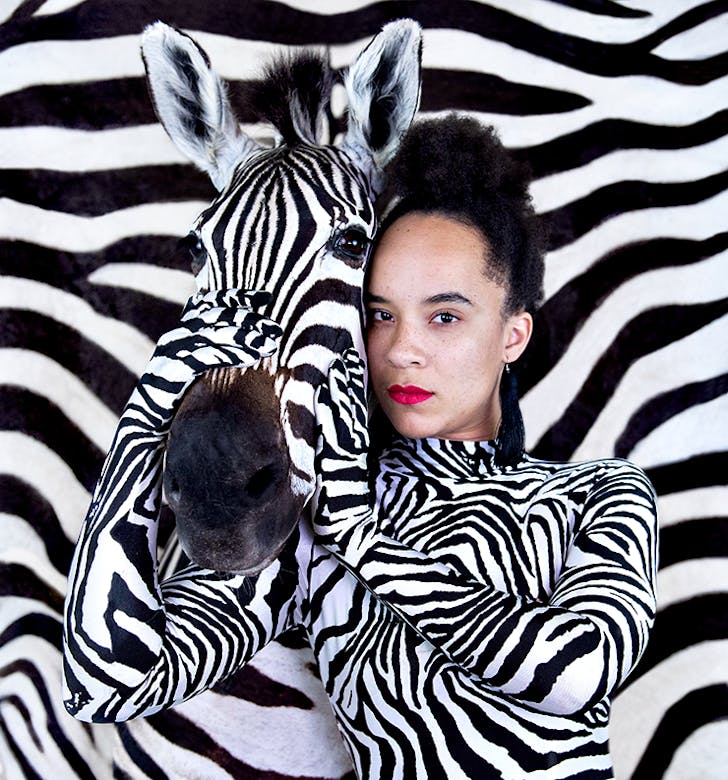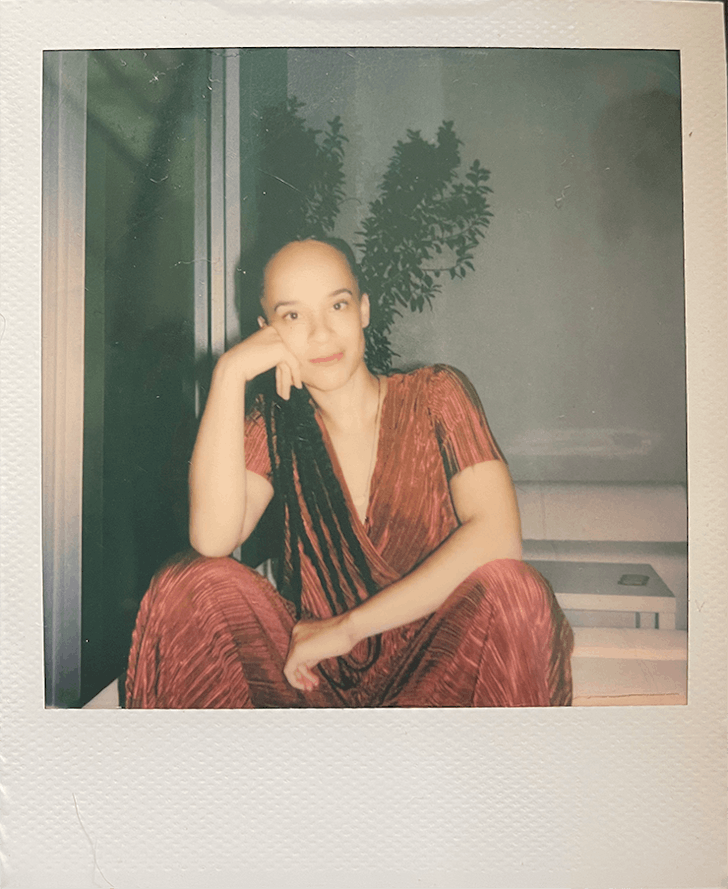Invest In Women: Nkechi Anele On Transformation And The Power Of Female Connection
Urban List's Guest Editor for March, Nkechi Anele is a Nigerian-Irish Australian artist based in Naarm best known for her decade-long career fronting the soul band Saskwatch, releasing four albums and touring and performing nationally and internationally at the biggest festivals in the world.
In 2015, Nkechi co-created The Pin, a discussion platform about race, identity, and culture through an Australian lens. With the changing narrative around social identity politics and race in Australia, seeking to document the lived experience of BIPOC people, build a bank of knowledge and foster a community for all people to grow and discover. That same year, Nkechi took over the weekly music program Roots N' All on Triple J. Over five years in this role, she championed Australian artists, international musicians, and emerging global music scenes worldwide to a national audience. Continuing to advocate for Australian artists, Nkechi joined the Board of Directors for Music Victoria in 2022 and has since spoken and moderated industry panels nationally.
I didn't know what to write for International Women's Day, so I did what any full-grown adult woman would do: I called my mum for advice. While riding the bus home from work, tired, my mum simply said, "Tell the truth." So here it is.
It's hard to describe womanhood. It's deep and complicated. It hurts and feels empowering. It's scary and yet makes us fearless. It's constantly evolving, whether we know it or not, and it is often out of our control. My story is singular to my experience, but while thinking about this year's theme, "Invest in Women: Accelerate Progress," I have thought about my journey from being a "boys' girl" to a fearless woman.

I'm aware that today is a hard day to celebrate. Just look at the news and talk to your female friends. You will find endless stories about the struggle of womanhood and how little progress we as a society have made to ensure that women are respected, listened to, and safe. I thought about writing about the recent and ongoing atrocities of war, capitalism, colonialism, paradigms of misogyny, and institutional abuse across industries. Still, I lack the experience and expert knowledge to give you the facts, and I don't want to mislead anyone. I will only speak on what I have lived through to demonstrate why we still need to acknowledge this day, even when the celebration feels inappropriate.
I once thought of myself as a "boy's girl," navigating a world that seemed ill-equipped for the complexities of womanhood. Witnessing the treatment of girls and women in society, I opted out of embracing certain feminine aspects, feeling a safer path lay in aligning myself with the perceived expectations of the masculine world. I found female friendships challenging for a long time, fearing superficiality and competition. I remember dreading being in bands with other women, anticipating conversations centred solely on aesthetics and choreography.
Despite its recent progress, the music industry often perpetuated this narrative, reducing women to objects of competition and value defined by superficiality. This experience manifested in a literal way when, after touring the UK, I returned to Australia with damaged vocal cords from the strain of singing and yelling into the early hours. A speech pathologist's question, "Do you realise you talk like a man?" revealed a truth I hadn't realised: I had unknowingly altered my voice, sacrificing my natural expression to conform to expectations. Relearning my natural voice at 24 became a symbolic journey of rediscovering and reclaiming my authentic self.
One day, a shift occurred. Perhaps it was the isolation I felt, the yearning for genuine connection. With a newfound resolve fueled by "liquid courage," I reached out to acquaintances at an after-party. "I want to be your friend," I declared, surprised by my boldness. When they responded with a friendly, "You are my friend," I clarified, "No, I'm really not. I want to show you how I can be a real friend." Despite my initial hesitations, they continued inviting me.
It took time, but eventually, I was welcomed into a network of strong and insightful women. This network, built on shared experiences yet diverse perspectives, became an invaluable support system. Through them, I gained guidance on navigating life's complexities, from mental and sexual health to financial independence and setting boundaries.

Last year, I hit rock bottom. It was (mostly) my female friends who became my lifeline, offering unwavering support through countless conversations, walks, and shared moments. These women, whom I once held at a distance, became my anchor, a testament to the strength and compassion of female friendships.
Investing in my female friendships provided personal growth and opened doors to explore more significant societal issues. The Pin, co-founded with my best friend Lucie Cutting, is a platform for conversations with BIPOC women, celebrating their strengths and contributions to Australian society. Through these discussions, we explore identity, race, and culture themes, highlighting stories of hope and resilience even in the face of adversity. One such story came from Nadia, a friend's mother. Her journey, from defying societal expectations in conservative Lebanon to becoming a flight attendant and ultimately rescuing her family from war, resonated deeply. It exemplified the courage and resourcefulness women possess, often going unrecognised.
Beyond individual acts of strength, women are the backbone of communities, fostering connections and driving progress. They are innovators and changemakers, yet their contributions, particularly domestic ones, often remain undervalued. It is time to recognise women's pivotal role and invest in their potential, understanding that societal progress is inextricably linked to their empowerment.
This International Women's Day, let's celebrate the diverse tapestry of womanhood. Let's acknowledge the struggles and celebrate the triumphs. Let's invest in women, not just with financial resources but also with unwavering belief and support. When we empower women, we empower ourselves, our communities, and, ultimately, the future we all share.
Read more from our guest editors here.
Image credit: Nkechi Anele | supplied
